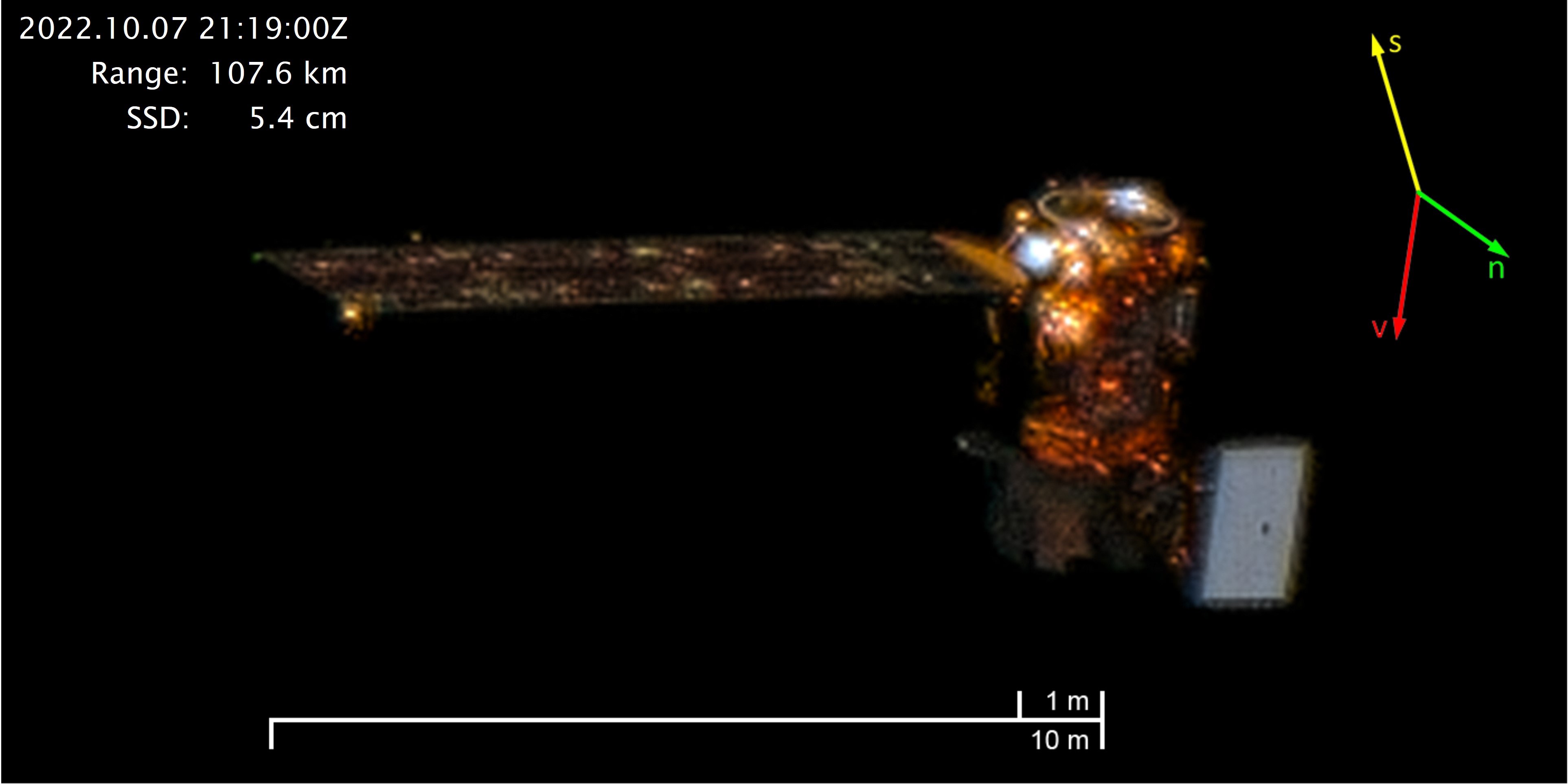Wow! Maxar satellite captures up-close look at NASA's Landsat 8 spacecraft in orbit
It's a view we rarely get to see.

Here's a rare close-up look at an active satellite in orbit.
Maxar Technologies' Worldview-3 satellite has delivered images of NASA's Landsat 8 spacecraft from ranges of between 56 miles (91.4 kilometers) and 80 miles (129.9 km), showing clear details of the powerful Earth-observation satellite.
A still image reveals the 29.5-by-1.3 foot (9 by 0.4 meters) solar array powering Landsat 8, as well as distinct science payloads on the satellite's 9.8-foot-long (3 m) bus, or main body.
Related: NASA celebrates Landsat 8's stunning Earth imagery
You've probably seen artists' renderings of #Landsat satellites in orbit... but how about an *actual image* of a satellite in orbit?Thanks to Maxar, we now have images of Landsat 8 orbiting Earth from the WorldView-3 satellite.Enjoy! 🛰️ pic.twitter.com/YFeQlHVV7tApril 3, 2023
Both satellites are in similar, near-polar orbits, with Worldview-3 circling around 381 miles (613 km) above Earth, while Landsat has a higher altitude of 437 miles (703 km).
The images also hint at how satellite imagery can be used for potentially checking out the health or causes of issues for satellites. They can also be used for improving countries' space domain awareness and checking out satellites launched by other space powers.
The U.S., Russia and China are thought to have space situational awareness or inspector satellites in geostationary orbit, where satellites can more easily adjust orbits to get relatively close up to other spacecraft.
Breaking space news, the latest updates on rocket launches, skywatching events and more!
Follow us on Twitter @Spacedotcom or on Facebook.

Andrew is a freelance space journalist with a focus on reporting on China's rapidly growing space sector. He began writing for Space.com in 2019 and writes for SpaceNews, IEEE Spectrum, National Geographic, Sky & Telescope, New Scientist and others. Andrew first caught the space bug when, as a youngster, he saw Voyager images of other worlds in our solar system for the first time. Away from space, Andrew enjoys trail running in the forests of Finland. You can follow him on Twitter @AJ_FI.
